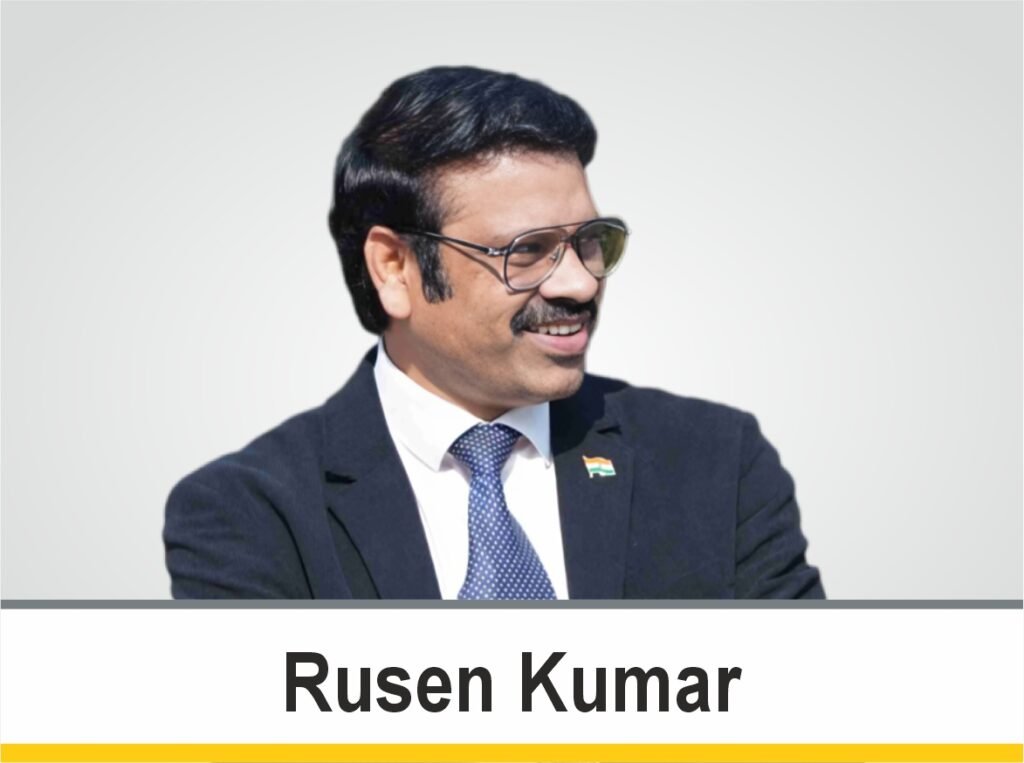
By Rusen Kumar
NEW DELHI (India CSR): In this exclusive interview, Rusen Kumar, Founder & Managing Editor of India CSR, speaks with Ankit Mathur, Co-founder and CEO of Greenway Grameen Infra, who leads the company’s mission to transform rural India’s clean energy landscape by providing affordable, efficient, and sustainable cooking solutions. Driven by the urgent need to address health hazards caused by smoky traditional stoves and the daily burden of firewood collection, Greenway developed the Jumbo Stove, a product designed for both aspiration and affordability. Central to their approach is empowering women, who are the primary users and drivers of adoption, allowing them to save time, reduce smoke inhalation, and become advocates for clean energy within their communities. Greenway’s innovations not only reduce carbon emissions by up to two-thirds per household but also improve health outcomes and alleviate pressure on forests, contributing to India’s climate goals. Through rigorous field-based R&D, microfinance partnerships, community demonstrations, and measurable SDG-aligned impact metrics, Greenway ensures that its solutions are culturally sensitive, widely adopted, and scalable. Under Ankit’s leadership, millions of households have gained access to cleaner, safer cooking, creating measurable environmental and social impact while advancing rural development across India.
1. What inspired you to start Greenway Grameen and design a product to address the needs of rural communities?
Millions of women endure health problems from smoky mud stoves, and their daily gathering of firewood and exposure to toxic smoke revealed an urgent crisis. This made us realize that an affordable, accessible cleaner cooking solution was needed.
After spending months in rural kitchens, talking to families and testing prototypes, we created the Greenway Jumbo Stove. We wanted to create a product that people would choose with pride, merging affordability and aspiration. Today, families save money, time, and breathe cleaner air inside their homes.
2. From your point of view, how crucial is women’s role in accelerating the adoption of clean energy solutions in rural areas?
As primary stove users, women are at the center of clean household energy transition. They would be able to determine the effectiveness of energy solutions. Moreover, solutions such as Greenway stoves enable faster cooking, reduce smoke inhalation and free up women’s time that can be used for employment opportunities and leisure. This results in them becoming ambassadors and distributors, recommending the Greenway stoves in their communities. We believe that clean energy transitions in rural India cannot happen without women at the forefront.
3. How do rural clean energy innovations like Smartstoves help India move closer to its carbon reduction targets?
When we think of carbon emissions, the focus is often on big factories. However, traditional chulhas also release back carbon, harmful smoke, and use up enormous amounts of wood. With a Greenway stove, households use up to two-thirds less fuel, and smoke emissions are also reduced by nearly 70%. Every stove saves about 1.5-2 tons of carbon annually. Multiply that across millions of homes, and the climate impact is huge. But it is beyond emissions, the Greenway stoves also improve the health of households and ease pressure on forests. Rural families simply cooking dinner in a cleaner way creates a ripple in India’s national climate goals.
4. How does Greenway measure its impact on Sustainable Development Goals (such as SDG 3, 5, 7, and 13), and how is this data woven into your overall strategy?
Impact lies in both stories and numbers. The Greenway stoves reduce household smoke exposure, help women have more free time, and offer income opportunities too. Additionally, the more households that adopt our stoves, the more they gain access to clean energy. We also measure emissions avoided through carbon credit programs, and so far have brought change to millions of households. These aren’t just metrics for reports; they shape how we scale, design, and partner.
5. There’s often a gap between delivering rural development products and their actual adoption. How do you navigate cultural and behavioural challenges to bridge this gap?
We learnt very early that it’s not just about pushing a product, we needed them to trust us and see real value. For instance, the Greenway stoves don’t change their lives; families can still cook the same way that they always have. This is what makes it easier to bridge the gap. We also worked with microfinance partners to help households pay for the product in small steps. Additionally, we conduct live demonstrations and build local distribution networks to help people see and experience the benefits themselves. Over the years, this approach has helped us administer real, lasting change.
6. What R&D policies or practices do you adopt to ensure your products continuously evolve in line with the changing needs and budgets of rural users?
Our R&D doesn’t happen in isolation; we take it into real kitchens. Even before designing the Greenway Smart Stove, we spent a year travelling across states, speaking with families, observing kitchens, and working on prototype solutions. This way, we ensured that our products are practical and efficient. We also noticed that rural households are cost-sensitive, so we ensure affordability is woven into the design, making it affordable and durable. At the same time, we can gather user data faster, making sure our solutions grow with their needs, not apart from them.
About Rusen Kumar
Rusen Kumar is a distinguished journalist, author, and visionary knowledge entrepreneur specializing in Corporate Social Responsibility (CSR) and sustainability in India. He is the founder and managing editor of India CSR Network, a leading platform dedicated to CSR and sustainability issues.
(Copyright@IndiaCSR)
Showcase your CSR achievements and share your insights with India’s leading CSR platform.
Contact us at biz@indiacsr.in I 9981099555 to feature your success stories and interviews.







